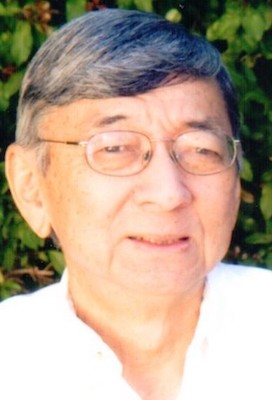
Harry Kawahara
(Photo: Courtesy of Kawahara Family)
By P.C. Staff
Educator, activist and counselor Harry Kawahara, who co-founded and served as the first president of the Greater Pasadena JACL chapter in the 1960s, pioneered getting Asian American studies classes into high school and college curricula in the early 1970s and served as the founding president of Pasadena City College’s Coalition of Asian Pacific Employees in the 1980s, died May 10. The Altadena, Calif., resident was 92.
A Nisei born in San Leandro, Calif., Sept. 14, 1931, Kawahara was the sixth of seven children born to Issei immigrants Momotaro and Takeno Kawahara. As a 10-year-old, Kawahara and his family were among America’s more than 125,000 ethnic Japanese whose lives and livelihoods were upended after President Franklin D. Roosevelt’s Feb. 19, 1942, Executive Order 9066.
Kawahara and his family would be detained at the Topaz War Relocation Authority Center in Utah.
After returning to California, Kawahara was elected student body president of San Leandro High School in 1949. At the University of California, Berkeley, he met lifelong friends Bob Suzuki and Norman Mineta.
After graduating from UC Berkeley with a degree in political science in 1955, Kawahara attended Pasadena’s Fuller Theological Seminary, graduating in 1960. In 1962, he and Jane K. Yamaguchi married. He also earned a teaching credential from California State University, Los Angeles.
Recalling Kawahara’s many accomplishments, Susie Ling, associate professor of history and Asian American Studies at Pasadena City College, said, “He did so many things on campus. . . . He was on lots and lots of committees. He was always ready to help out.”
Among Kawahara’s accomplishments:
- Becoming the first Asian American faculty member at Monrovia High School
- Helping Pasadena establish Fred Korematsu Day in 2011
- Pushing to have Asian American Studies taught at the high school and community college levels
- Testifying at the Los Angeles Commission on Wartime Relocation and Internment of Civilians hearing in 1981
- Recruiting and preparing testimonials of surviving incarcerees for the CWRIC hearing
- Serving as JACL’s Pacific Southwest District Council vice governor and board member.
In a Densho oral history, Kawahara recalled the genesis of the Greater Pasadena chapter.
“There was an existing Pasadena chapter of JACL . . . We thought about joining them and beginning to take on some leadership roles with the other group. We said, ‘Well, it might be easier just to form our own group.’”
In an interview with Pacific Citizen, Ling marveled at how Kawahara and his fellow Nisei defied the “Quiet American” stereotype by also speaking out against the Vietnam War and helping to establish Asian American Studies. “I’m very impressed with them now that I’m older,” she said.
Kawahara’s own words underscore Ling’s observation. He told Densho: “We were out there marching against the war in Vietnam, marching with our fellow minorities regarding civil rights, human rights.”
In 2013 at the JACL’s Pacific Southwest District Awards Luncheon, Kawahara was among the event’s honorees (see Pacific Citizen, Oct. 4-17, 2013).
Kawahara is survived by his wife, Jane; and sons, Tim Kawahara and Reed Kawahara; daughter-in-law, Trish; and grandchildren, Emiko and Walter.



